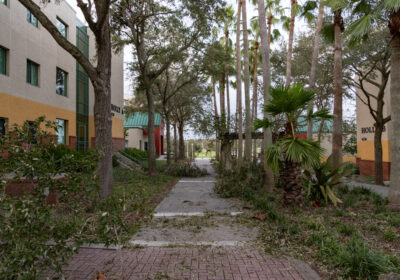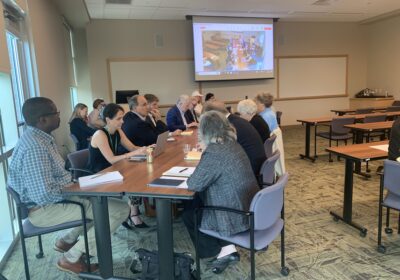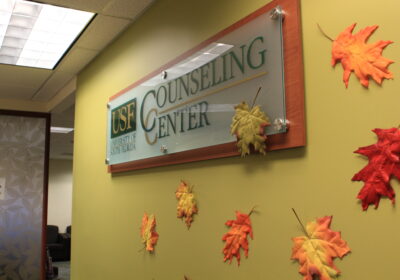Advisers added to meet USFs strategic goals
In an attempt to move away from faculty advising, USF has hired 43 new professional advisers during the past five years.
The new hires have reduced the adviser-to-student ratio from 1-to-700 or 800 to about 1-to-350, Vice Provost for Strategic and Budget Planning Graham Tobin said at a Student Government presentation last month.
American College Testing recommends that the professional adviser-to-student ratio is 1-to-350, said Cheryl Anderson, assistant to the vice provost for Communications and Marketing.
Paul Dosal, vice provost for Student Success, said advising is an integral part of promoting student success that focus, leading to better graduation and retention rates.
The last five-year (strategic) plan was launched in 2007, he said. In 2008, USF embarked on this effort by professionalizing the advising system we have, by hiring advisers whose primary job is to advise.
Dosal said that USF focused on raising the quality of advising and that it didnt do it in order to save money.
We are hiring advisers whose main job is to support student success, he said. Professional advisers are better positioned to raise student success. Advisers should work directly with students to help them model an academic plan to graduate in a timely manner.
The College of Arts and Sciences, which has added nine advisers in the past five years, has switched all advisers to professionals said, Autumn Mueller, director of advising for the College of Arts and Sciences, said. Two departments, economics and anthropology, were fully converted last year.
Three departments that have only professional advisers are the Athletics Department, the Honors College and the Transitional Advising Center, she said.
Katharine Cole, associate dean of Undergraduate Studies, said there are now only three faculty advisers in the College of the Arts and six in the College of Engineering.
For faculty advisers, advising is just a portion of their job description. There is no extra compensation for the advising they do, Cole said. Professional advisers earn between $30,000 to $40,000 per year.
While faculty advisers have in-field experience that professional advisers may lack, Allison Cleveland-Roberts, assistant dean for the College of Arts and Sciences, said hiring professional advisers allows faculty to focus on teaching.
We are able to put teachers back in classrooms and that allows more sections to open up and more students are able to get seats, she said.
Cleveland-Roberts said that just because a faculty member has a Ph.D., it doesnt always mean they know how to advise.
Advisers are there to help students balance their load, she said. They dont have to have a PhD in a discipline for that. Look at advising as the 30,000-foot view of your degree. Advisers establish that logic for your degree. They are really critical.
Yet Judith Chiang, a junior majoring in business who recently switched her major from biology, doesnt think so. She said she felt her biology advisers could have used more experience in the degree field.
For biology, the advisers were unreliable, she said. I wish they could have been more focused on their areas of study.
Mueller said an infield degree is not the most important factor in hiring an adviser.
When we hire, we look for people who are lifelong learners, who can keep up with policy changes and absorb bureaucracy, she said. They are still educated to learn. They get involved in departments. They are not teaching the classes but they visit classes, interact with the faculty and students. They know the curriculum.
Brent Lamons, an adviser for the College of Education who majored in history and philosophy and minored in Greek and biology as an undergraduate, said most students dont care if advisers have majored in the fields they are advising in.
Yet the importance of an in-field degree, he said, depends on the field.
For the hard sciences, such as chemistry, having an adviser with a chemistry degree would be more helpful to a chemistry student, he said. You wouldnt want someone who has never taken organic chemistry or calculus to try to explain those classes to you.






